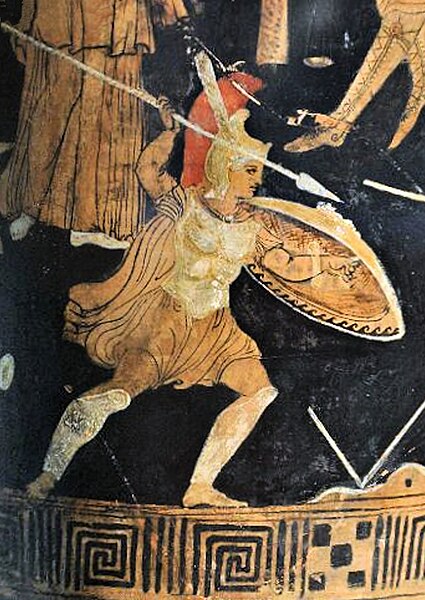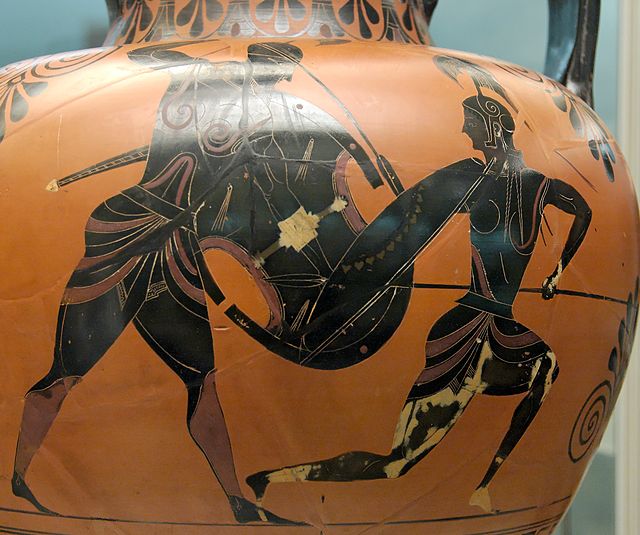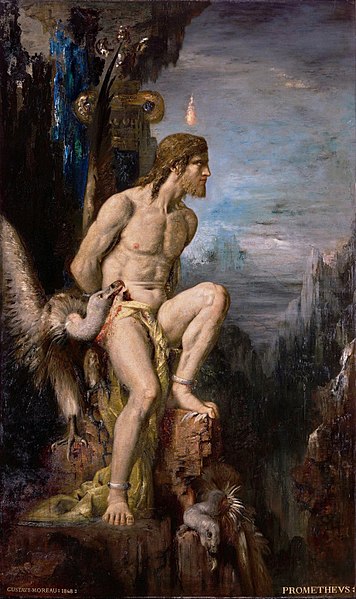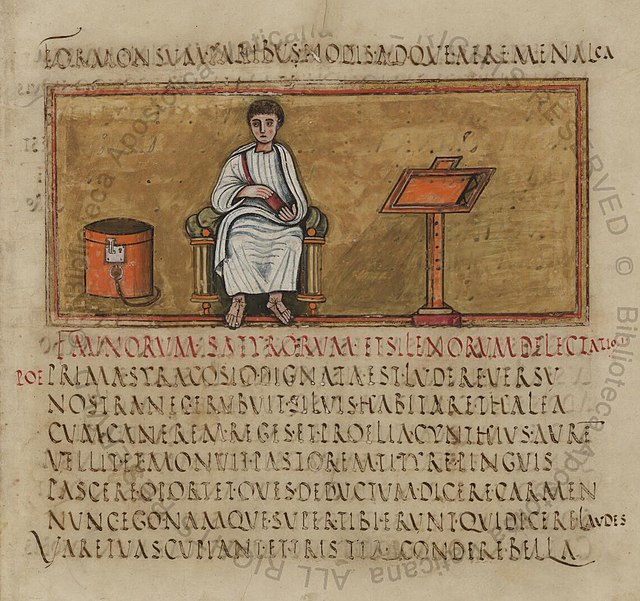In Greek mythology, Achilles or Achilleus was a hero of the Trojan War who was known as being the greatest of all the Greek warriors. A central character in Homer's Iliad, he was the son of the Nereid Thetis and Peleus, king of Phthia and famous Argonaut. Achilles was raised in Phthia along with his childhood companion Patroclus and received his education by the centaur Chiron. In the Iliad, he is presented as the commander of the mythical tribe of the Myrmidons.
Ancient Greek polychromatic pottery painting (dating to c. 300 BC) of Achilles during the Trojan War
Thetis Dipping the Infant Achilles into the River Styx by Peter Paul Rubens (c. 1625; Museum Boijmans Van Beuningen, Rotterdam)
The Education of Achilles, by Eugène Delacroix, pastel on paper, c. 1862 (Getty Center, Los Angeles)
The Education of Achilles (c. 1772), by James Barry (Yale Center for British Art)
Greek mythology is the body of myths originally told by the ancient Greeks, and a genre of ancient Greek folklore, today absorbed alongside Roman mythology into the broader designation of classical mythology. These stories concern the ancient Greek religion's view of the origin and nature of the world; the lives and activities of deities, heroes, and mythological creatures; and the origins and significance of the ancient Greeks' cult and ritual practices. Modern scholars study the myths to shed light on the religious and political institutions of ancient Greece, and to better understand the nature of myth-making itself.
Achilles and Penthesileia by Exekias, c. 540 BC, British Museum, London
Prometheus (1868 by Gustave Moreau). The myth of Prometheus first was attested by Hesiod and then constituted the basis for a tragic trilogy of plays, possibly by Aeschylus, consisting of Prometheus Bound, Prometheus Unbound, and Prometheus Pyrphoros.
The Roman poet Virgil, here depicted in the fifth-century manuscript, the Vergilius Romanus, preserved details of Greek mythology in many of his writings.
Phaedra with an attendant, probably her nurse, a fresco from Pompeii, c. 60 – c. 20 BC








